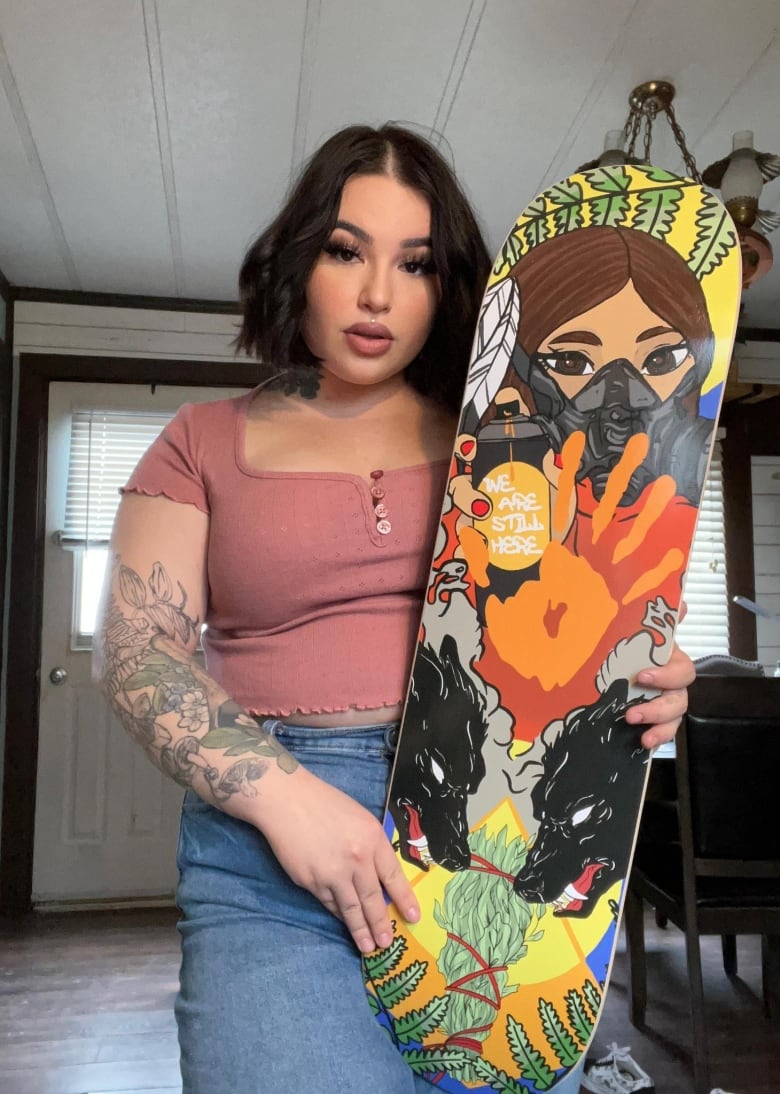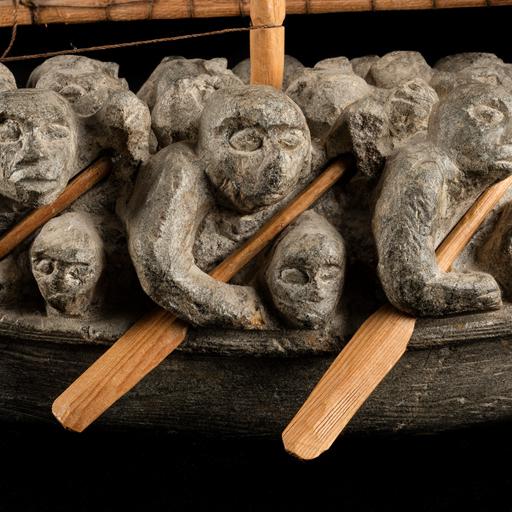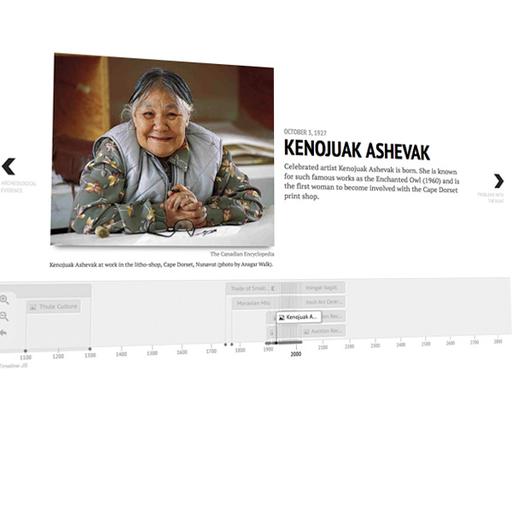Landing tricks in style, skateboard decks get splash of Kanien'kehá:ka art and culture
CBC News | April 06, 2022
Categories: news
'I hope when someone sees them, they'll see themselves in the art and feel connected’
Ka’nhehsí:io Deer · CBC News · Posted: Apr 06, 2022 4:00 AM ET | Last Updated: April 6

Kaiènte:ri McGregor said one of her childhood dreams came true the moment she saw her own artwork featured on a skateboard deck.
The 21-year-old from Kahnawake, south of Montreal, fell in love with the sport when she was younger and was always awed by the vibrant deck designs sold in stores.
"'What do you even have to do to get your art onto these decks?' was just a thought that I had, then lo and behold, I got the opportunity," McGregor said. "It's nice to feel represented in something that I wouldn't imagine having Kanien'kehá:ka art with."
McGregor's deck depicts an orange handprint and a woman holding up a spraypaint can that reads "We are still here" — a reference to the abuses Indigenous children suffered while attending residential schools.

It is one of four decks designed by Kanien'kehá:ka (Mohawk) artists for a project launched by the Kanien'kehá:ka Onkwawén:na Raotitióhkwa Language and Cultural Center to promote local artists, culture, and skateboarding.
Scott Berwick, a photo archivist at the cultural centre, said he hopes to see the decks hit the pavement for an event the centre is organizing on June 21. The day marks both National Indigenous Peoples Day and Go Skateboarding Day.
"I have a feeling a lot of people will be hanging them up in their houses … but they're also meant to be used. It will be fun to see and see them out there in the real world," he said.

Collaborating with other communities
A total of 200 decks were created and distributed between Kahnawake, Kanesatake, and Tyendinaga — the communities where each of the four artists are from.
"Having our art represented anywhere is an achievement, but skateboarding has its own vibrant art scene and I was hoping to contribute some cultural elements that you might not normally find," said Jasmin Gunn.

Gunn, 37, is a comic writer and graphic designer from Kanesatake, northwest of Montreal. She included the community's pine forest in her design as well as a turtle, wolf, and bear to represent the three Kanien'kehá:ka clans.
"I wanted to make sure they had the spirit of being battle-ready and tough, to reflect the strength you need to go out there and hit the pavement, fall down and get back up again," said Gunn.
Emma Doreen, 19, also incorporated the three clans into her design, along with the Tree of Peace and Skydome patterns as nods to the Kanien'kehá:ka Creation Story.

"These are easily recognizable Kanien'kehá:ka symbols. I hope when someone sees them, they'll see themselves in the art and feel connected," said Doreen, who is from Hamilton, Ont., with family from Six Nations of the Grand River, Mississaugas of the Credit First Nation and Tyendinaga.
"It means a lot to me to have my artwork featured in this project because it's combining things that are parts of me: art, skateboarding and my culture," said Doreen.
She picked up skateboarding from her brother two years ago.
"To see the representation in something I'm interested in like skateboarding, it inspires me that I'm not alone," Doreen said. "I hope this project can inspire others."


